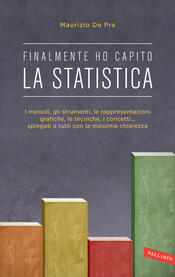

Sinossi
Da vent'anni Jonathan Haidt, psicologo morale e filosofo, indaga i meccanismi profondi che regolano la nostra esistenza, fatta di scelte su cosa per noi è giusto o sbagliato, di valori che crediamo universali, di unioni e di laceranti divisioni, di giudizi e pregiudizi. L'obiettivo è rispondere a una domanda che riguarda il nostro stesso stare al mondo, dalla semplice quotidianità al massimi sistemi della politica e della religione: per quale motivo non riusciamo ad andare d'accordo, e anzi ci dividiamo così facilmente in gruppi, in tribù ognuna delle quali è convinta di essere nel giusto? il risultato è "menti tribali", un libro che propone una via alla convivenza e al dialogo, partendo dalla comprensione dei meccanismi biologici ancestrali da cui nasce la nostra ricerca del bene.
- ISBN:
- Casa Editrice:
- Pagine: 450
- Data di uscita: 10-10-2013
Recensioni
Haidt is much better psychologist than political philosopher, and this book is both monumental and dangerously flawed. On the good side: Haidt draws broadly from research in psychology, anthropology, and biology to develop a six-factor basis for morality (Care/Harm, Liberty/Oppression, Fairness/Cheat Leggi tutto
If you are a Republican this book will make you feel very good about yourself. According to Haidt you have a more balanced morality, a realistic view of "human nature" (beware anyone who says they understand human nature), and some other good stuff I forgot about. He points the finger at liberals bu Leggi tutto
Disclaimer: This is NOT a critique of Haidt. This is a critique of the ideas that Haidt brings up in the "The Righteous Mind" book. It is not a condemnation but (what I hope is) constructive criticism. Haidt has done more rigorous work on social media's influences on the adolescent mind which is wor Leggi tutto
I was hopeful this book might provide me with some sociological tools and rhetorical tricks to clear away the views of those who disagree with my positions on politics and religion. Of course this book does not deliver on this unrealistic hope. What the book does provide instead is an explanation wh Leggi tutto
I expected this book to be good, but I did not expect it to be so rich in ideas and dense with information. Haidt covers far more territory than the subtitle of the book implies. Not only is he attempting to explain why people are morally tribal, but also the way morality works in the human brain, t Leggi tutto
At first I gave this book 3 stars because I felt like I might have been too critical. After thinking about it a while, I decided I was not merely critical enough. This book should be renamed "How to Justify the Action of Oppressing Human Beings In the Name of Getting Along." You can take any of Haid Leggi tutto
On page 88 the author writes: "As an intuitionist , I'd say that the worship of reason is itself an illustration of one of the most long-lived delusions in Western history: the rationalist delusion." Apparently he hasn't noticed that reason has taken us to the moon, given us longer and healthier live Leggi tutto
There were many points as I was reading this that I had to check my assumptions and back down. Automatic groupings based on similarities tend to almost ALWAYS lead every single one of us to post hoc reasoning. What do I mean? Everyone jumps to conclusions based on their intuition. That feeling of righ Leggi tutto
"This book is about why it’s so hard for us to get along. We are indeed all stuck here for a while, so let’s at least do what we can to understand why we are so easily divided into hostile groups, . . Politics and religion are both expressions of our underlying moral psychology, and an understanding Leggi tutto
Citazioni
Al momento non ci sono citazioni, inserisci tu la prima!























